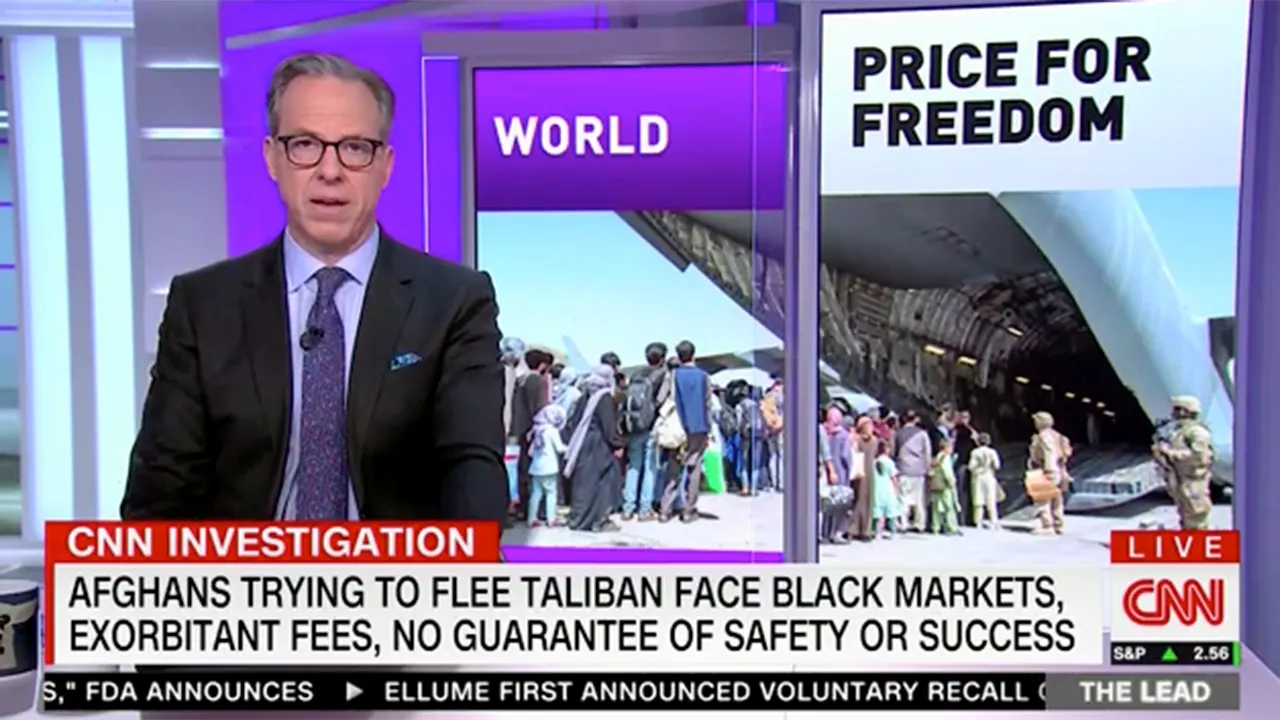Inside the CNN Defamation Trial: The Battle Over ‘Black Market’ Accuracy
As the courtroom buzzes with anticipation, the high-profile defamation trial involving CNN has garnered significant media attention. At the heart of this legal battle is the contentious use of the term “black market” by the news network, which has raised questions about journalistic integrity and the responsibility of media outlets to provide accurate reporting. This trial not only examines the specific case at hand but also poses broader implications for media standards and accountability, potentially reshaping the landscape for news reporting in the digital age.
The Context of the Case
The defamation trial stems from a report aired by CNN that described certain transactions as occurring on a “black market.” The entity involved in the case alleges that this characterization was misleading and damaging to its reputation. Defamation suits often hinge on the accuracy of statements made by media outlets, and the definition of terms like “black market” can vary significantly based on context, intent, and public perception.
In the media landscape, where quick reporting can overshadow nuanced understanding, the choice of words can have profound consequences. The term “black market” typically refers to illegal trading activities that occur outside of government regulation, often associated with illicit goods and services. However, the implications of labeling a legitimate business activity as part of a “black market” can lead to reputational harm that may be irreparable.
CNN’s Defense: Upholding Editorial Standards
During the trial, CNN’s editor took the stand to defend the network’s editorial choices. The defense argues that the term “black market” was used appropriately within the context of the report. They maintained that the characterization was based on thorough research and analysis of the economic activities described. This assertion raises critical questions about editorial discretion and the standards to which media entities hold themselves.
In light of an official apology issued by CNN regarding the use of the term, the network’s legal team contends that the apology was a reflection of their commitment to journalistic integrity rather than an admission of wrongdoing. This distinction is crucial, as it highlights the tension between accountability and the operational freedoms of the press.
The Broader Implications of the Trial
This defamation trial is poised to have far-reaching implications for the media industry. As audiences increasingly rely on digital platforms for news consumption, the accuracy and reliability of reporting become paramount. A ruling in favor of the plaintiff could set a precedent that influences how journalists choose their language, particularly when it comes to sensitive terms that could evoke negative connotations.
Additionally, the case sheds light on the evolving relationship between media and the entities they report on. As businesses navigate the complexities of public perception, the stakes are high when it comes to how they are portrayed in the media. The outcome of this trial could lead to more stringent guidelines for how terms are defined and used within journalistic contexts.
Understanding Defamation in the Digital Age
Defamation laws, which vary widely from one jurisdiction to another, play a crucial role in balancing freedom of speech with the protection of individuals and businesses from harmful statements. In the digital age, where information spreads rapidly and often without verification, the challenges posed by defamation are amplified. Social media platforms have become hotbeds for misinformation, which complicates the landscape for traditional news outlets.
In this context, the accuracy of language becomes a matter of public trust. Media consumers are increasingly discerning, demanding transparency and accountability from news organizations. Journalists are now tasked with the dual responsibility of reporting the truth while also ensuring their language does not mislead or misinform the public.
The Role of Public Sentiment
Public sentiment plays a significant role in defamation cases, especially when it comes to media coverage. The reactions of audiences can influence the perception of a news organization’s credibility. If the public perceives that an outlet has acted irresponsibly, it can lead to a loss of trust that impacts viewership and advertising revenue.
In this trial, the reactions from viewers and stakeholders are being closely monitored. The public’s response to CNN’s use of the term “black market” could potentially sway opinions about the network’s reliability and integrity. This trial is not just a legal battle; it is also a battle for the hearts and minds of the audience.
The Future of Media Standards
As the trial progresses, the media industry is watching closely. The implications of the court’s decision will likely resonate beyond this particular case, prompting a reevaluation of editorial guidelines across news organizations. In an era where misinformation is rampant, the need for robust standards that prioritize accuracy and ethical reporting is more critical than ever.
- Media Accountability: The trial could lead to more stringent accountability measures for news organizations.
- Language Precision: Journalists may adopt a more cautious approach to language, especially with terms that carry significant implications.
- Audience Engagement: The relationship between media outlets and their audiences may evolve, with increased emphasis on transparency and responsiveness.
Conclusion: A Pivotal Moment for Journalism
The ongoing CNN defamation trial represents a pivotal moment for journalism, underscoring the intricate balance between freedom of the press and the responsibility to report accurately. As the courtroom drama unfolds, the outcome will not only affect the parties involved but also set a precedent that could redefine media standards in the years to come.
In an age of rapid information dissemination and evolving public expectations, this trial serves as a critical reminder of the power of words and the importance of accountability in the media. As journalists and news organizations navigate these challenges, the lessons learned from this case may shape the future of reporting, ultimately fostering a more informed and engaged public.
See more CNN Headline


